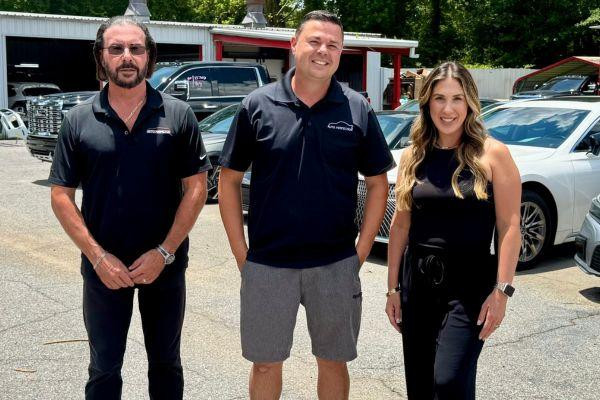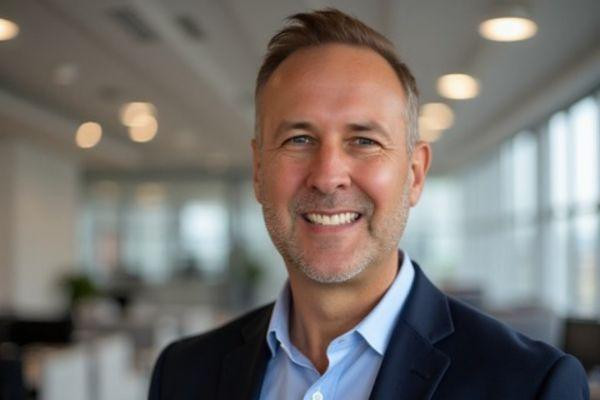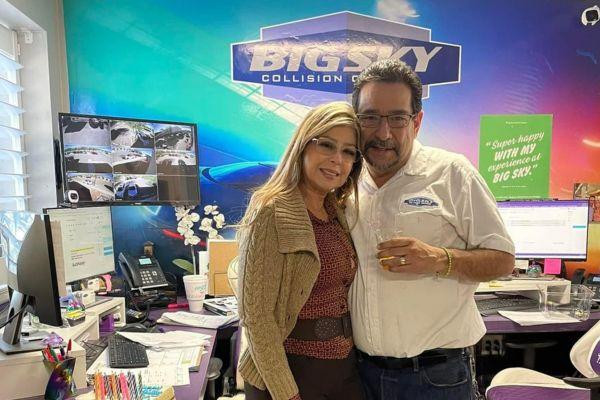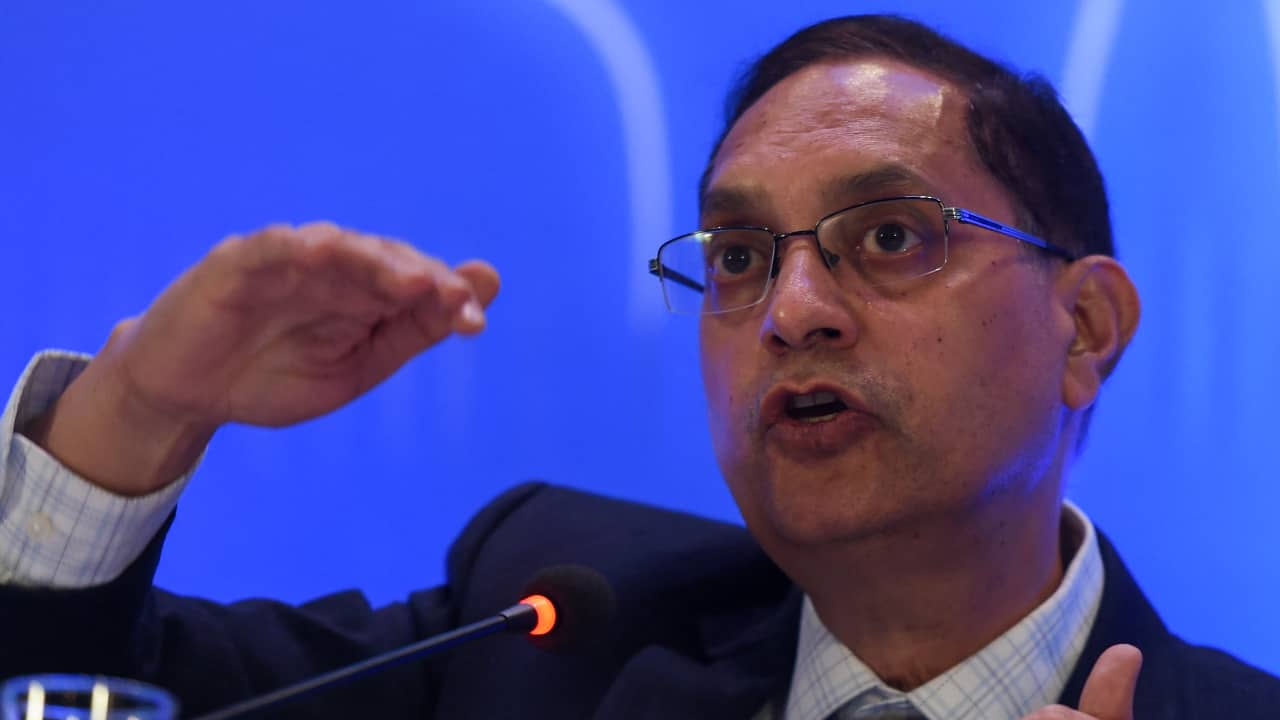Body Shops Find Their Financials Lacking Despite Money in Bank
Being skilled in collision repair doesn't always translate to effectively running a business, but shop owners can get help.
“We’ve run the business off of looking at our bank account,” said , co-owner of Auto Perfection in Savannah, GA. The shop has north of 20 years in operation, but it took joining an AkzoNobel 20 Group for Paez to start asking questions.
“I started realizing my numbers weren’t clean,” he said.
Meanwhile in Tucson, AZ, found four years back his Big Sky Collision Centers owed $92,000 more in federal income taxes.
“The problem with the industry is you don’t really know,” he said. He means the tendency-habit-practice of the long-time shop sweeper-tech-operator-owner — he has 47 years overall in the industry — to avoid that unsexy, technical work of putting in dollars or pulling them from the correct virtual mattresses.
“Where’s your ROI at? If you have a question, is the answer easily accessible?” Murrieta said.
In one sense, Paez and Murrieta still don’t do this work — they’re body guys, not accountants. But they get it done, and after some serious issues, they understand it better, and the importance of it.
Paez’s performance group was part of this, as catalyst, then the learning curve. Twenty collision center owners in other markets get together to share strengths and weaknesses.
What was your strength, he is asked.
“Staying in business is a strength in this damn industry,” Paez said. Then, reflecting: “OEM certifications. We were doing a great job of getting jobs in, keeping customers happy, but it was the finances… ” His voice trails into the weakness side of the ledger.
 Left to right: Israel, Danny and Monica Paez.
Left to right: Israel, Danny and Monica Paez.
“I was never taught the business side of the business,” Paez said, echoing a refrain not uncommon among shop operators. Cleaning up your books is a growing, crucial activity among shop owners, whether they plan to sell, or buy, or just run better.
Which is to say, run well, which is to say how one is supposed to do it. Sure, ADAS and AI pushes, and consolidation are getting an array of attention, but the day-to-day, down-and-dirty will knock shops down well before technology and other trends.
Auto Perfection had a bookkeeper for 17 years, and that can work against you. “Been in this business 30 years” is the common operator refrain for not wanting to change. But Paez wanted to do better, and he got more questions than answers in that pursuit.
He said one aim was setting up a chart for all the shop’s various accounts — “materials, labor” — and another was switching from the desktop to an online version of QuickBooks. The bookkeeper retired and Danny’s wife , previously an estimator, has internal oversight now, and for the last four years.
“Materials gross profits were in the dumps, and I could never figure out why,” Danny said. Was it over-pouring or the vendor over-charging or the shop over-stocking? He simply didn’t know. But he knew, “We gotta change how we map things.”
The outside resource is Crunchit Financial, a Texas-based tax, legal and accounting services provider run by former shop owner . One of the first things it found was how parts delays affected cash flow. And a second discovery: about $180,000 in accounts payable. These aren’t always unrelated.
 Bill Park.
Bill Park.
“I had several months of where I was bleeding,” Paez said, “not billing everything out. We’d finish everything and a final invoice wasn’t submitted” to the payee.
The shop pays weekly and is on the phone a couple times a week. “This is what’s coming, knock this out by Tuesday … this looks funny … get a better tax break,” Danny said. “Communication has been phenomenal.”
Monica handles this. “They’re notifying her, ‘Do you want to close this out, is this a real charge?’ … I know the feedback, and she’s not easy to please,” Danny said. It frees up Danny up to do his best thing, which happens on the shop floor. His dad, , also a co-owner, is alongside him there.
Sales aren’t significantly higher at the shop — 20,000 square feet, 16 employees, 100 cars a month — “but I’m keeping more money by paying attention.”
Danny said the key is not just having the knowledge — “the control over your finances” — but knowing what to do with it. He needed “someone who could speak CCC and QuickBooks” and who will speak directly and honestly to him about where you’re doing lousy.
Which is how a shop owner doing his own financials might put the phrase.
An outside guru: “Let’s take a look at this and see where we can improve.”
 Rosa and Xavier Murrieta.
Rosa and Xavier Murrieta.
Murrieta found the difference between the two one April, when his tax liability at the end of the doing-it-in-pen part was $92,000. This was nearly four times higher than the average of previous years’ bills.
Murrieta also noted the need for one’s accountant to know the lingo of both numbers software and the industry — what Paez referred to as QuickBooks plus CCC. Murrieta’s bookkeeper had real estate chops, given Murrieta’s other investments, but with body shops “she made a bunch of errors.” When he had enough, he called Park.
Murrieta is again someone who intimately knows collision repair, but can’t necessarily say what exactly got missed in the tax filings. His roughly five decades in the biz includes his stint directing marketing for Gerber in Arizona, and working as a liaison between insurers and shops.
But, “you gotta be a businessman” now, he said, specifically one in this industry. “A lot of accountants don’t understand that.” Murrieta said Park does.
Like Auto Perfection, Big Sky’s issues included how income and expenses were categorized, as well as how — and what — deductions were on the table, and sometimes got left there.
This is all, in one sense, OK.
once called a group of Nobel Prize winners gathered at the White House the greatest gathering of human knowledge there, “with the possible exception of when dined alone.”
It’s alright if you know how to paint but not accounts payable. Truly it is.
But at least have the equivalent expertise on call. Jefferson on speed dial.
Park’s tax advisory certification is with the Mark Kohler Group in Arizona, focused on solo entrepreneurs. On corporate compliance, Crunchit works with Texas-based Main Street Business Services. The company also has access to retirement planning, long-term wealth creation consultants, and asset protection.
“Every client has an issue in one or more areas,” Park told Autobody News. “The thing we do is structure and perfect your financials … to be sophisticated at a high-level” addressing needs. This “rock solid” approach as core financial focus beats “buying equipment they don’t really need, to get a deduction.”
It includes technical work, like daily bookkeeping and “missed items” reports, “getting granular, then into the behavior gaps: posting, closing files — training shops to solve problems.”
“If you know you know, and if you ‘think’ you know, you don’t know,” Murrieta said. It took several years of working with Crunchit, and “calling the IRS once a month for the last four years,” to get most of his payment from that woeful 2021 back. “It was a battleship making a U-turn,” he said.
That’s about 40% of how long Big Sky has been in business. The niche shop is in a master-planned submarket of Tucson known as Rita Ranch. It’s about 7,000 square feet, with nine employees, with Farmer’s and Allstate DRPs, and sees about 75 to 100 cars a month. Xavier co-owns the shop with his wife .
“I’m the only out here,” he said, and the plural in Big Sky Collision Centers is purposeful: he wants to own a few more shops. Fixing his financials handles one aspect of that, though the tech shortage persists.
On financials — and ADAS and AI and buying and selling — independent body shops need any help they can get “to level out the playing fields with MSOs,” he said. “The little guys aren’t going away; we’ll be here until the end of time.”










